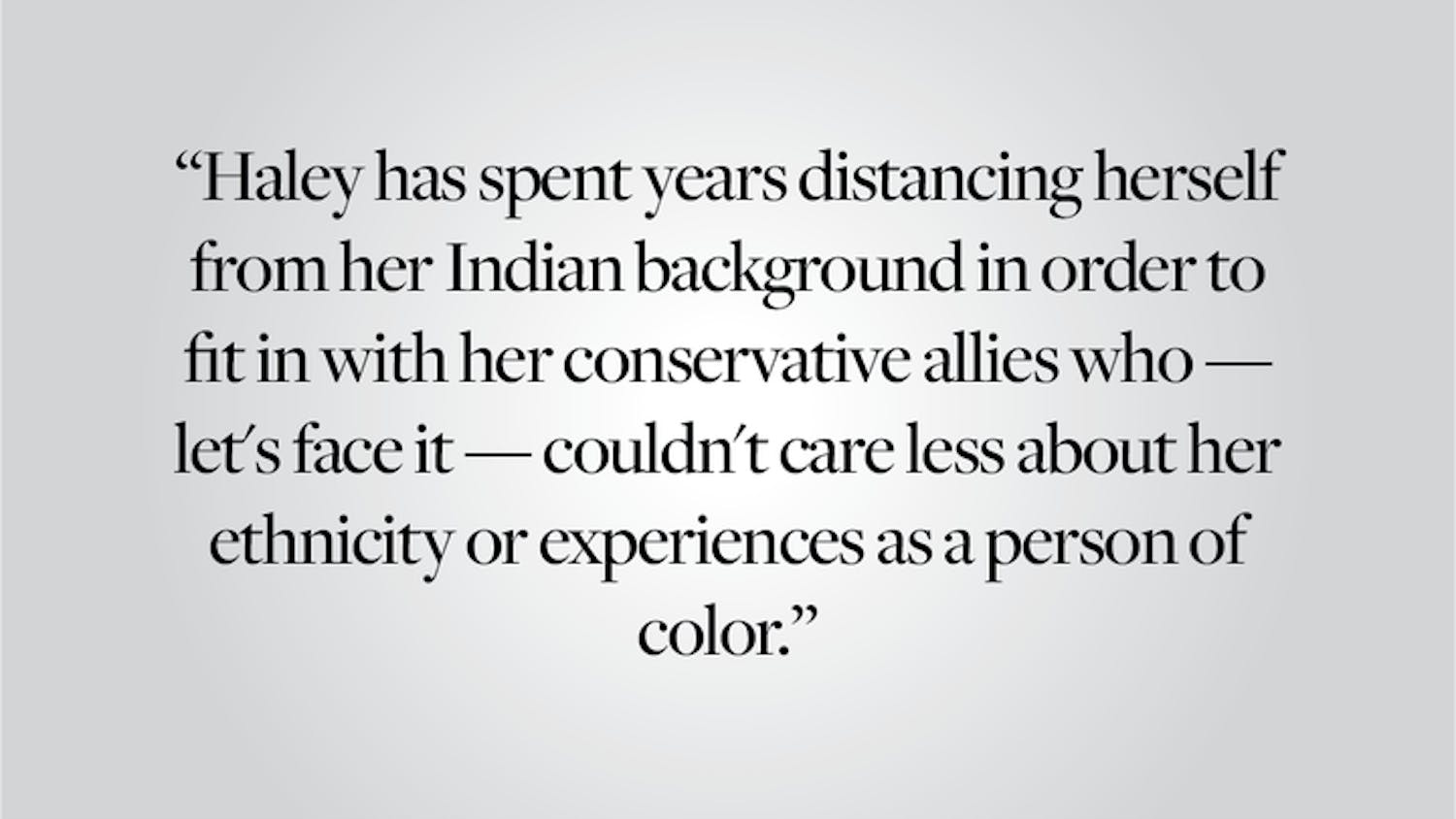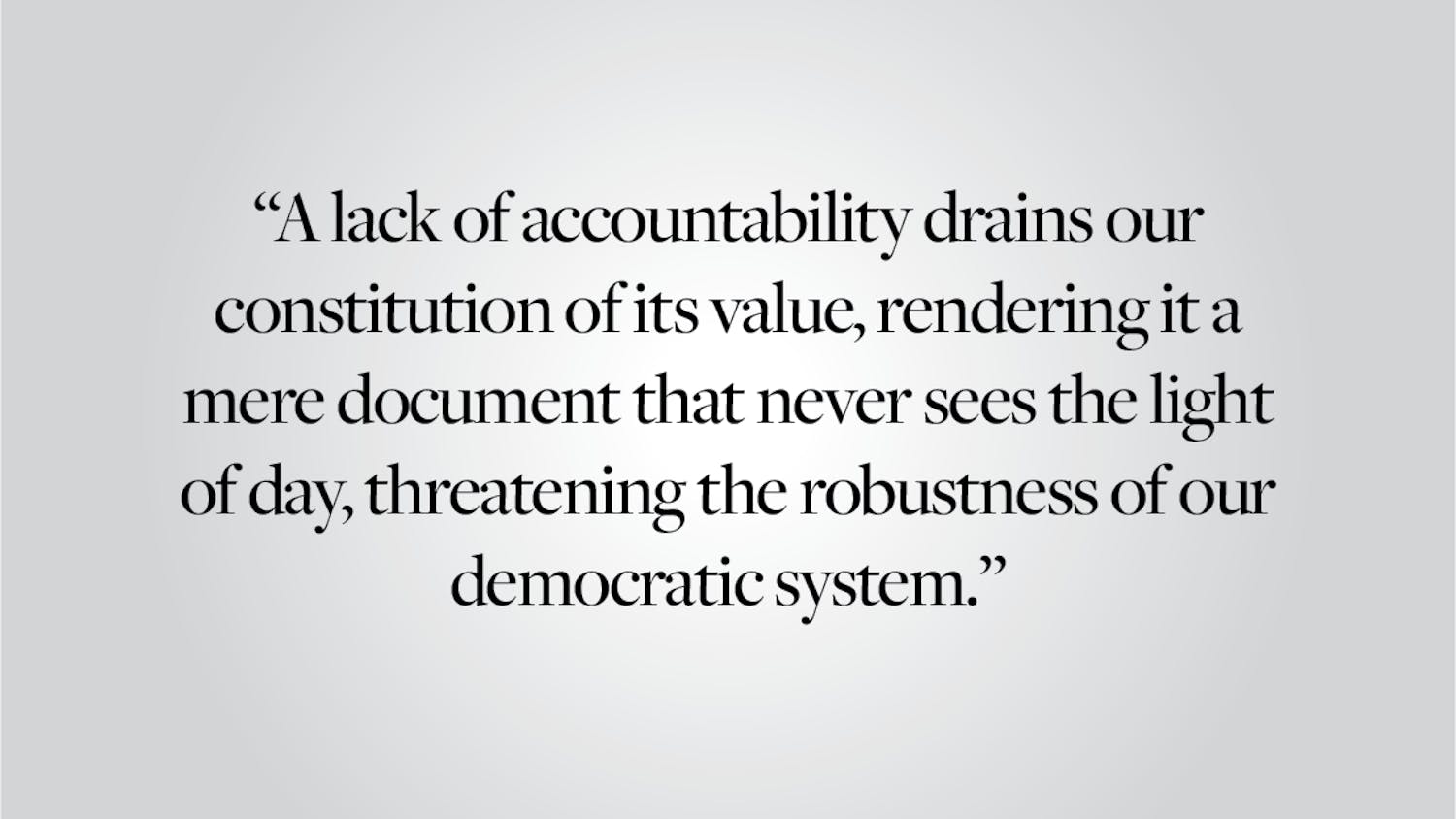If we are to believe the media and historical texts, then most African governments were corrupt, are corrupt or are on their way to corruption. But the continent’s citizens have always been vigilant, condemning and protesting against their leaders and their corrupt ways. This steadfast fight among Africans gives me hope and has instilled in me a tenacious ferocity to identify and expose any acts of corruption lest my continent stagnate in poverty and inefficient governance. It is with this conviction that I write this piece, for we have among us an organization that epitomizes modern-day African governance: the African Students Association — also known as Afrisa.
Historically, Afrisa has been an organization led by continental rather than diasporic African students. It has been a space designed to support students’ adjustment to Brown. It was the only space on campus where people who grew up on the African continent could come together and discuss matters that pertain to the continent. In fact, the Afrisa constitution states, “The purpose of Afrisa shall be to bring together the African community and those with interest in the African continent at Brown University to celebrate identities and support the individual.”
This all changed two years ago.
In the fall of 2014, Afrisa held its annual elections and chose as president, for the first time, a first-generation African student who grew up in the United States. This change was not inherently wrong. But I was opposed to this move for two main reasons: first, that the majority of the people who voted for the candidate had not come to Afrisa meetings prior to the election and had not been active members, and second, that as continental Africans, we need a space of our own where we can lead and run our own club and engage with African issues. It is evident that bringing in people who were not members of the club and allowing them to vote was unfair to existing members of the club.
Having witnessed this phenomenon all too often in our own countries (such as in Kenya in 2007 and Zimbabwe in 2008 and 2013) where dead peoples’ votes counted and elections were rigged, pre-existing members like myself were appalled by this action. The Afrisa election angered and frustrated us, and we washed our hands of the club, vowing never to participate in its proceedings ever again!
Currently, the Afrisa administration is run by a majority of first-generation African students. There is an underrepresentation of continental Africans in the club, and this is a disservice to the entire African community at Brown. It has made us feel unwelcome in our own club. Moreover, the focus of the club has shifted — now, the club emphasizes issues that are more relevant to the African diaspora and less relevant to people from the continent itself.
It is concerning that most of the continental African upperclassmen no longer participate in Afrisa. But what’s more worrying is that now continental African underclassmen do not have a space to interact with their fellow countrymen and women and thus lack much-needed support. The Afrisa administration has made extensive efforts to mentor underclassmen, but its efforts are ineffective since a majority of the club’s leaders and members do not identify with the same struggles that continental African underclassmen face.
Moving forward, I would like to offer several options that the club and continental Africans could pursue. I suggest that the Afrisa administration begin an honest conversation among members about the purpose, mission and outcomes of their organization. I also recommend that the group come up with concrete strategies to make every member feel welcome and appreciated. This could mean changing the balance of continental African and first-generation African students in leadership positions and choosing some meeting topics that center around the experiences and interests of continental African students.
Afrisa leaders must recognize that their membership is composed of students with diverse experiences and connections to the continent. Accordingly, they must work to create a space where all members’ experiences are valued and needs are met. If this does not happen immediately, then the continental African students should consider splitting from Afrisa to form a new club that is open to everyone with an interest in Africa but run by continental Africans so it better meets their needs. In any case, change is needed. Change is needed fast.
If Afrisa is to represent the African continent, it must attend to the needs of all its members and abide by the tenets of the constitution it has so ignored.
Daniel Murage ’17 can be reached at daniel_murage@brown.edu.
Please send responses to this opinion to letters@browndailyherald.com and other op-eds to opinions@browndailyherald.com.




